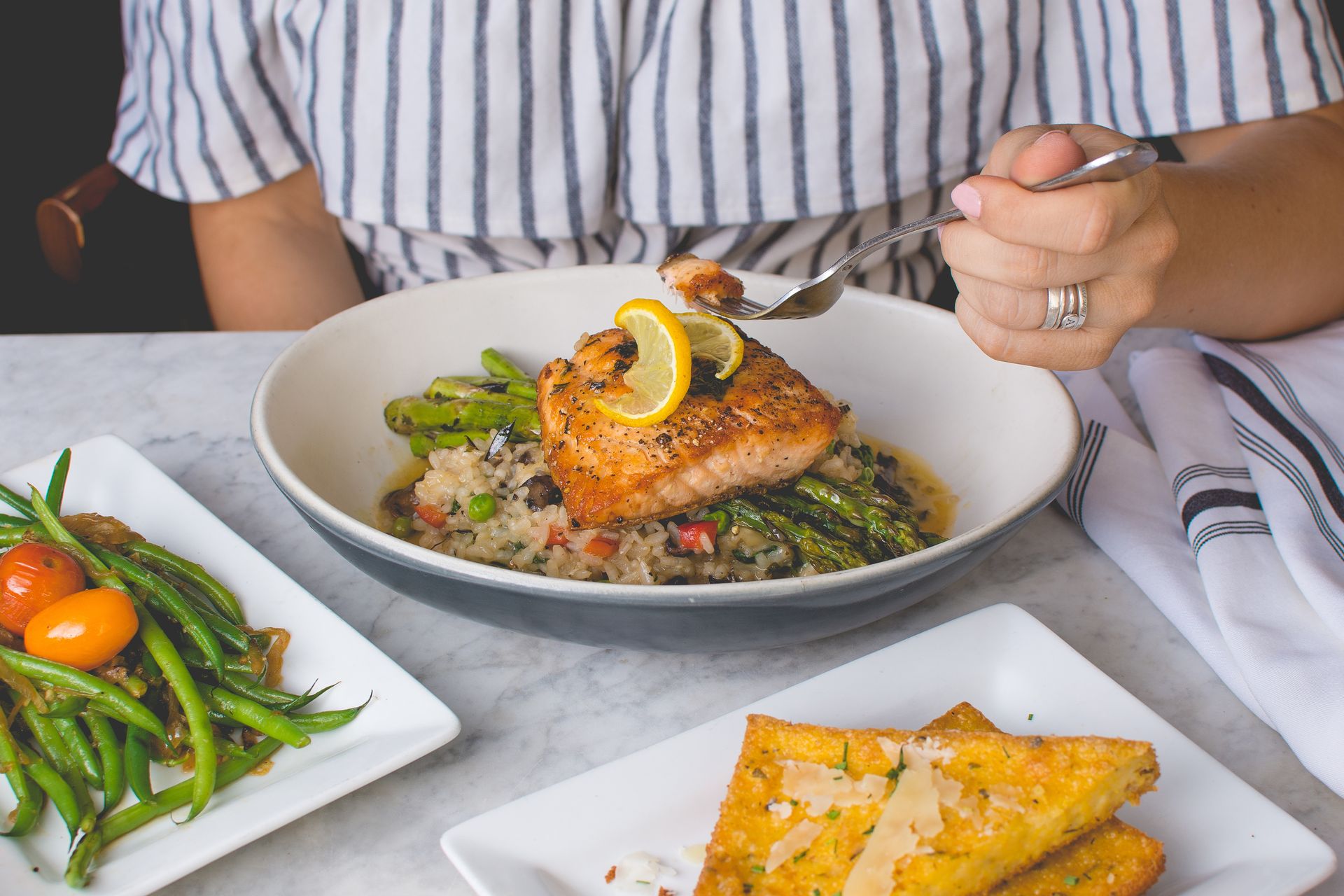Intuitive eating is a way of eating that follows your natural cues and is opposed to diet culture and obsession with calories. In intuitive eating, we rediscover our natural rhythms and the pleasure of food. Food becomes nourishment and self-care.
Important health organizations like The British Heart Foundations are recommending intuitive eating as a healthy way to relate to food.
If you have been struggling with yo-yo dieting, or simply confused by “food rules” and trends, reconnecting with your own body and learning to eat in a more mindful and intuitive way could be beneficial.
Would you like to say goodbye to the diet mentality, enjoy your food and naturally recognize your hunger and fullness cues?
1. Reject the diet mentality
Diets don’t work, and most people get stuck in a cycle of restrictive diet and weight gain. Diets mess up your metabolism and weight control center in the brain. They are not sustainable in the long run, leading to cravings and making it difficult to recognize the natural hunger and fullness cues.
2. Recognise your hunger
The first step to healthy eating is to recognize your hunger. Eating when you are hungry won’t lead to weight gain, but eating when you are bored, sad or stressed will.
3. Make peace with food
No food is off-limit. Allowing yourself to eat any type of food, means that you are less likely to have cravings and binge on it later on. Restrictive diets always come with a list of foods that are “forbidden” fostering feelings of guilt or even shame when you have them. In intuitive eating food is fuel and nourishment.
4. Feel your fullness
In the same way, you need to become aware of your hunger cue, you need to be aware of when you are full. Basically, you need to know when you start and you need to know when to finish.
This may be more difficult than it sounds as most people nowadays are disconnected from their bodies, while restrictive diets and emotional eating mess up your natural hunger and fullness cues.
5. Challenge the ‘food police’
Become aware and challenge any internal thoughts that may categorize food as good or bad as this can create feelings of guilt and shame around food.
6. Discover the satisfaction factor
Food is fuel, food is nourishment, food is pleasure. Savior the experience of eating: set aside some time away from your phone or computer and focus on what you are experiencing. Be curious of new flavours and food, cook and create a pleasurable environment to enjoy your meal.

7. Cope with your feelings without using food
Emotional eating is one of the most common reasons why people can’t lose weight. Using food to soothe your emotions like sadness, anxiety and stress, brings you to overeat and binge on high palatable, high calories but nutrients poor foods, giving away to feelings of guilt and shame.
Find other ways to deal with your emotions, ways that support your long-term health, well-being and happiness.
8. Respect your body
Self-acceptance is important to foster feelings of wellbeing. We are all different shapes and sizes and accepting your uniqueness, will make it easier to set realistic expectations regarding food and exercise, making choices that are logical rather than emotional.
9. Exercise and feel the difference
Choose a form of exercise you enjoy, and focus on how it makes you feel, taking the focus away from weight loss. Choose something that you can easily fit in your lifestyle: walking, hiking, dancing, riding your bike or whatever makes feel good.
10. Honour your health
Focus on choices that nourish your body, your soul and your taste buds. Chose food that is real, nourishing and that you enjoy supporting your long-term health and wellbeing.
The Pitfalls of Intuitive Eating
Intuitive Eating is a great way of connecting with your body to create a way of eating that respect your need and support your long-term health and well-being.
Many of us are disconnected from our bodies and emotions, so intuitive eating should be a journey of discovery and learning, it is not a quick fix.
The other downside is that most people are really confused by the nutrition information out there, or don’t have the ability to translate that information in a cohesive and seamless way that fits their lifestyle.
What you need to make intuitive eating work for you
To make intuitive eating work for you, you will need a grounding knowledge of what constitutes healthy eating, and how to translate that into your everyday life, whether you have the possibility of preparing a meal at home or eating out.
The information comes from :
What is intuitive eating | The ten principle of Intuitive Eating (thehealthygourmet.co.uk)